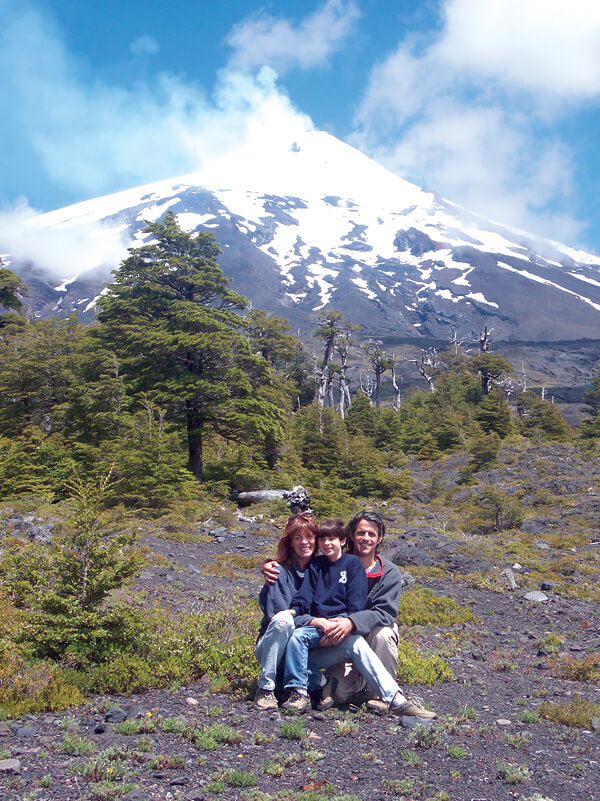10 Steps for Successful Family
Sabbaticals Abroad
By John Ciullo

|
|
Your family sabbatical can take you anywhere, including hiking remote regions of Chile.
|
A year ago, my American dream consisted of a good job, home, mortgage, cars, cell phones. Quality time with my son was picking him up at school and dropping him at karate class.
Then came a layoff and an opportunity to rethink our plans. Or maybe realize another dream that we had for more than a decade — extended travel abroad, a family sabbatical.
We decided that it was time to act, and since sojourned through many of the countries of South America, settling for the past several months in Argentina. We have explored the ancient ruins of Quilmes, slogged through rain in Tierra del Fuego National Park, and cautiously climbed an active volcano in Chile. We have hiked old-growth rainforests and explored the dizzying heights of the Andes. We learned why you don’t wear red to bullfights in Northern Argentina and waddled amongst the largest penguin colony at the tip of the continent.
“You’re so lucky,” was the oft-repeated phrase of our friends and acquaintances as we set out on our journey. The decision to travel and live overseas was simple when we asked ourselves, “Is this best for our family?” The reality has not always been as easy. But we have never looked back.
“It is never too late to build family foundations,” says Dr. Nicholas Levy, a pediatrician affiliated with the Univ. of California, San Diego, who advocates traveling sabbaticals for families. “Travel, particularly international travel, exposes families to different lifestyles that intrinsically bring families together.”
“Adaptation and accommodation are probably the most valuable lessons that we can teach our children,” Levy says.
Whether your extended travel abroad with your family takes years to blossom or is a swift act to recapture your life, here are 10 key steps to consider before you leave town:
1. Set goals as a family before you leave. Why are you going? What do you wish to accomplish? What are the measures of success for your journey? One of our key family objectives was to learn Spanish, which my son is now studying in an Argentine school. My wife and I have also taken classes and practice daily.
2. Recruit a support team to care for your belongings at home. We have people who check our mail, watch our car, and mind other belongings. Have your children choose friends to look after their most precious assets (a pet fish, a favorite toy, etc).
3. Encourage your children to participate in the research process. Get them genuinely excited about the things they will experience. What areas sound most interesting to them? Is it exploring ancient castles or climbing extinct volcanoes?
4. Update your important documents. Now is a great time to revise your will or living trust. Who will take care of your children if something happens to you? If you don’t have a plan, you’re living in the dark ages.
5. Set up an easy way for your children to communicate with friends and family during your trip. With near universal access to the Internet, it is easier than ever to create a web site, blog, or mass email distributions. We have a family web page with a special "Kids Only" section.
6. Document, document, document. Have your kids keep their own journal, paint landscapes, and take photographs. This is the trip of a lifetime; make sure your children capture the adventures.
7. Encourage your children to bring small gifts from home (key chains, stickers, postcards) to offer people they meet.
8. Pack a few special items your children cannot live without. Make sure they are personally responsible for their care (jewelry, stuffed animal, electronics).
9. Consider local schools rather than home schooling if you plan to stay in an area for several months. This will give your children additional cultural immersion, allow them to meet others and make local friends, and take some pressure off you as a teacher and parent.
10. Plan to continue family traditions on the road. If Friday night was pizza night at home, then continue this routine and use favorite local food specialties.
John has run an ecotourism travel company based in Bariloche, Argentina.
|
